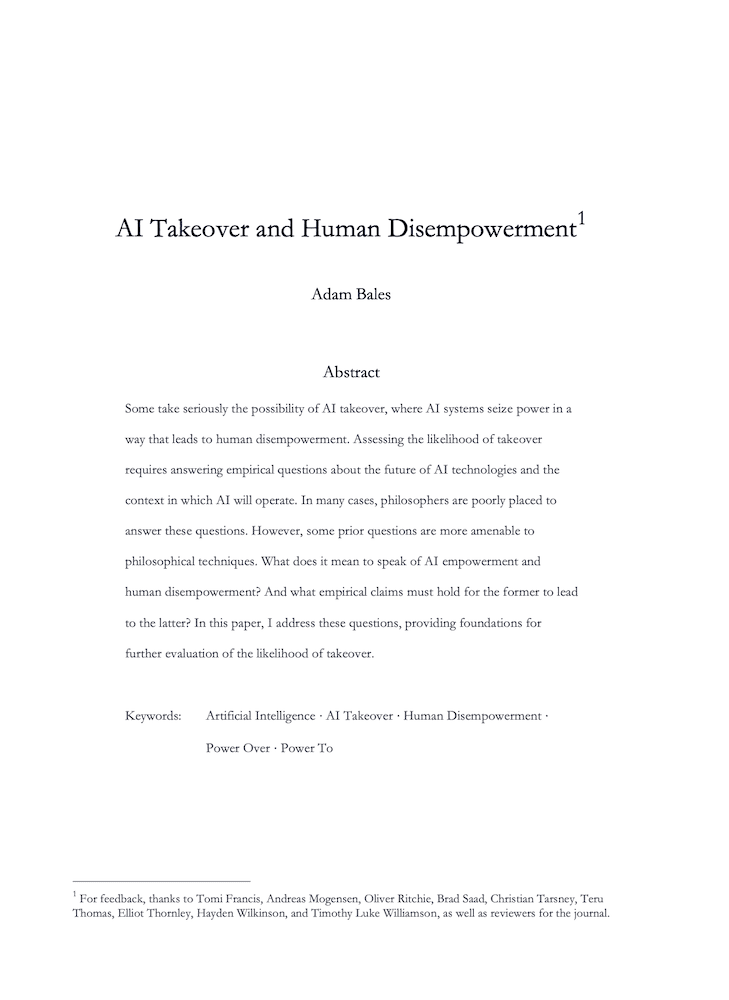AI takeover and human disempowerment
Adam Bales (Global Priorities Institute, University of Oxford)
GPI Working Paper No. 9-2024, forthcoming in The Philosophical Quarterly
Some take seriously the possibility of AI takeover, where AI systems seize power in a way that leads to human disempowerment. Assessing the likelihood of takeover requires answering empirical questions about the future of AI technologies and the context in which AI will operate. In many cases, philosophers are poorly placed to answer these questions. However, some prior questions are more amenable to philosophical techniques. What does it mean to speak of AI empowerment and human disempowerment? And what empirical claims must hold for the former to lead to the latter? In this paper, I address these questions, providing foundations for further evaluation of the likelihood of takeover.
Other working papers
Crying wolf: Warning about societal risks can be reputationally risky – Lucius Caviola (Global Priorities Institute, University of Oxford) et al.
Society relies on expert warnings about large-scale risks like pandemics and natural disasters. Across ten studies (N = 5,342), we demonstrate people’s reluctance to warn about unlikely but large-scale risks because they are concerned about being blamed for being wrong. In particular, warners anticipate that if the risk doesn’t occur, they will be perceived as overly alarmist and responsible for wasting societal resources. This phenomenon appears in the context of natural, technological, and financial risks…
Staking our future: deontic long-termism and the non-identity problem – Andreas Mogensen (Global Priorities Institute, Oxford University)
Greaves and MacAskill argue for axiological longtermism, according to which, in a wide class of decision contexts, the option that is ex ante best is the option that corresponds to the best lottery over histories from t onwards, where t is some date far in the future. They suggest that a stakes-sensitivity argument…
Can an evidentialist be risk-averse? – Hayden Wilkinson (Global Priorities Institute, University of Oxford)
Two key questions of normative decision theory are: 1) whether the probabilities relevant to decision theory are evidential or causal; and 2) whether agents should be risk-neutral, and so maximise the expected value of the outcome, or instead risk-averse (or otherwise sensitive to risk). These questions are typically thought to be independent – that our answer to one bears little on our answer to the other. …

